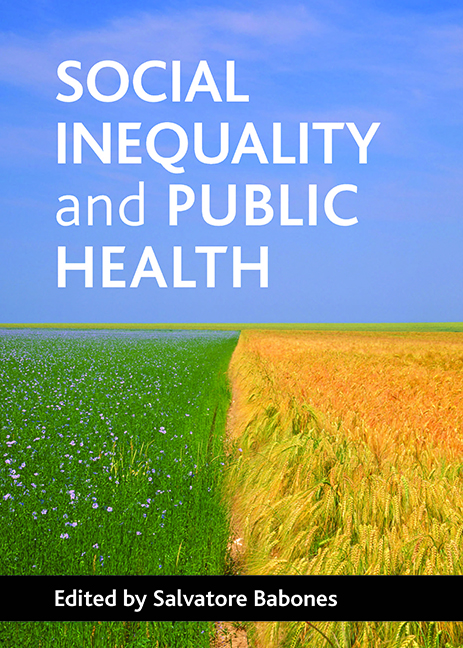Book contents
- Frontmatter
- Contents
- List of figures, tables, maps and boxes
- Preface
- Notes on contributors
- one Introduction
- Pathway 1 Differences in individual health behaviours
- Pathway 2 Group advantage and disadvantage
- Pathway 3 Psychosocial factors in individual health
- Pathway 4 Healthy and unhealthy societies
- Conclusions Public understanding of the new public health
- Index
thirteen - Inequality and health: models for moving from science to policy
Published online by Cambridge University Press: 22 January 2022
- Frontmatter
- Contents
- List of figures, tables, maps and boxes
- Preface
- Notes on contributors
- one Introduction
- Pathway 1 Differences in individual health behaviours
- Pathway 2 Group advantage and disadvantage
- Pathway 3 Psychosocial factors in individual health
- Pathway 4 Healthy and unhealthy societies
- Conclusions Public understanding of the new public health
- Index
Summary
Introduction
More equal societies exhibit longer life expectancy than less equal societies. This implies that societies could potentially become healthier through reductions in inequality, but the micro-level mechanisms through which this could be accomplished are not obvious. Nonetheless, it is clear that there exists some sort of relationship between inequality and health, and that it is both scientifically and politically important. Given this, what is the best way to move towards policy implications? Getting from health science to health policy requires first that the statistical model connecting income inequality to population health be translated into a conceptual model that traces out the transmission mechanism through which societal inequality is ultimately reflected in individual health.
It is argued later in this chapter that inequality affects health mainly through its relationship to the character of the workplace, and that the character of the workplace must change in order both to reduce inequality and to promote population health. A long tradition of research on social structure and personality has taught us that (external) work conditions affect the worker's (inner) self (Kohn and Schooler, 1982); parallel research on worker autonomy has more recently shown how such conditions are correlated with health outcomes (Marriot and Davey Smith, 1997). It is reasonable to surmise that working conditions thus affect health through their effects on the self; this suggests that the appropriate location for policy intervention is the workplace.
That said, specific pathways through which such mechanisms operate must be identified and corresponding public policy options must be formulated that intervene at the level of the individual's lived reality. Moreover, and too often overlooked in policy work, ways to engage society in promoting positive change by implementing the appropriate policies must be identified. This chapter offers a framework within which each of these required steps might be accomplished. The ultimate goal of this framework is improved health, but even if that goal is never realised, the policy mechanisms highlighted below – better workplaces, greater leisure time, more cohesive societies – are certainly worthwhile goals in their own rights. If better societies are defined as better environments in which their citizens can live out their lives, then better health might simply be a pleasant fringe benefit.
- Type
- Chapter
- Information
- Social Inequality and Public Health , pp. 185 - 198Publisher: Bristol University PressPrint publication year: 2009



